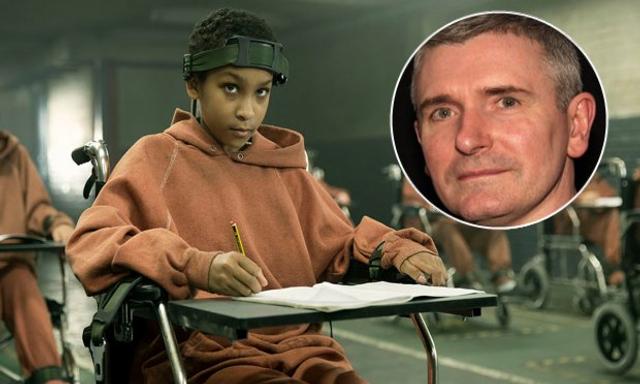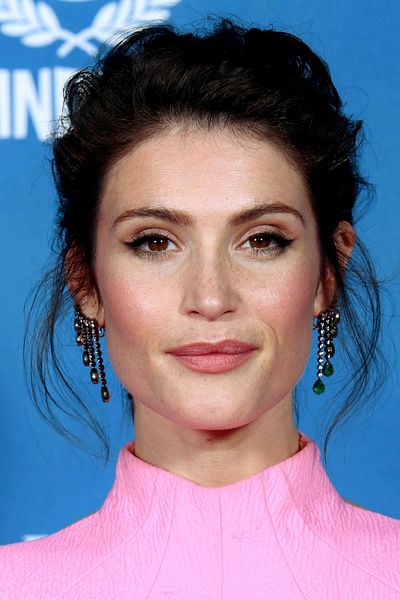In Conversation With... is our interview series where we talk to someone of the most well-known and respected actors and directors about their career, filmography, influences, what they make of the industry nowadays and everything in between.
Released this Friday, The Girl With All The Gifts tells the story of a young girl who lives in a small cell underground and is guarded day and night by a team of scientists and soldiers.
Unbeknownst to her, she is considered not only dangerous, but perhaps the key to human survival - or extinction. We spoke to M.R. Carey, the author of the novel and the screenwriter about adapting his own work, the film's themes and message, its ending and the casting process.
Be warned, there are spoilers ahead.
There's a line that authors shouldn't adapt their own work and rarely do, in fact. How was it moving the story from page to screen?
I found it to be a really productive process. The key was that actually, it was a short story and then the novel and then the screenplay - and I was doing it all, side by side, with one medium illuminating the other. We made different sets of creative decisions for each medium and it really was liberating. I think it led to the novel being one of the most cinematic novel I've written and some of the characters were formed from the decisions I made.
Let's talk about Glenn Close. She really is one of the most complex characters in the whole film. Where did the character come from?
She's only mentioned in the short story. I think once Justineau (Gemma Arterton) is a woman, Cauldwell (Glenn Close) almost has to be. We've seen that driven-almost-mad-scientist played by men so many times. I think Cauldwell is more interesting and nuanced as a woman and the antagonism works best between her and Justineau when they're of the same gender. You're right, she is one of the most interesting characters, especially how Close plays her - that ferocious intelligence, that intellectual arrogance, that she sees herself as the saviour and that justifies everything and that final confrontation between her and Melanie really pays off because of her performance.
Were they any characters that you specifically wrote with an actor in mind? I mean, Paddy Considine's character felt like it was actually him.
Paddy's a special case there. I don't tend to cast in my head, but when I was writing the screenplay and the novel, the voice of Parks (Paddy Considine) kept going wrong. It kept going American and I think it was because I'd seen so many American actors play that tough-guy-with-an-unexpected-heart-of-gold thing. In order to keep him straight in my head, I imagined either Paddy or Sean Bean saying the lines and amazingly, Paddy was the guy they approached. There were definitely drafts that occurred after we had everyone cast. I went back and tweaked some lines for people. I went back and tweaked Cauldwell's dialogue once I knew it was Glenn because when you see her in your head saying the lines, it comes together in a different way. That final scene between Melanie and Cauldwell changed after Glenn came onboard.
Did she have any input in the character? Did you talk to her about it?
Yeah, one of the first things she did was ask Colm if she should put on an English accent and he said, "No, God forbid," - so now she's an American in England when the world fell apart, so that makes her a different person, isn't she? I don't know if you noticed, but she wears a wedding ring in the film and that was one thing that grew out of her own characterisation, whose own family has been cauterised and she completely forbids herself from forming any kind of emotional connection with Melanie and, right at the end, Melanie asks her, "Am I human?" and then... the walls come down.
The gradual reveal of the state of the outside world, was that a reaction to other zombie films that effectively announce it from the get-go?
It was more about introducing the audience to Melanie and get them emotionally on her side before we found anything about it or her. So, staying underground, keeping her secluded in the cell without any context, that was about getting the audience to connect with her emotionally - and then, later, we find out she's a monster.
The ending of it really was something like Dawn of the Dead, I really wasn't expecting it to go THAT far into it. Was there anyone who... maybe, interjected or stopped it?
Nope. Never. Nobody once said it. Some other aspects of the story were queried, but nobody ever said, "Don't take it so bleak." I remember, actually, we were showing a rough cut with some of the creative partners and they said, "It's going to be darker than this, right?" And Colm just said, "Yes." (laughs)
Did you question it yourself?
Not the ending, no. I did question the scene when Melanie is almost dissected, that I questioned. I took my glasses off, walked away from the keyboard and spent half the day thinking about other things and came back to it because it's a really, really dark scene. I'm a parent myself and this is, y'know, two women about to dissect a child and I began second-guessing myself. But the ending always felt hopeful to us, a happy ending, actually, given the other parameters involved.
What are you working on next?
I've a load of things going on in different media. I've got the sequel written for Girl With All The Gifts that's called Boy On The Bridge, it's set ten years before the events. I'm working on an adaptation of Fellside, hopefully working with Colm again if all goes well. Lots of stuff going on.



















































































